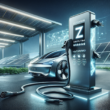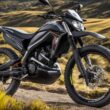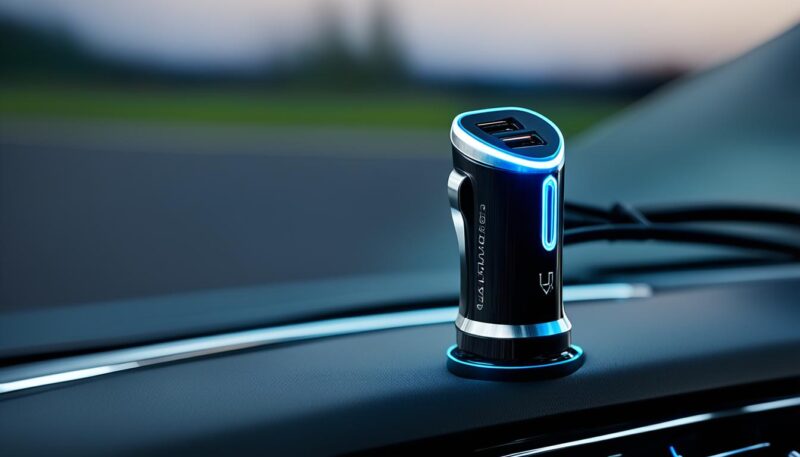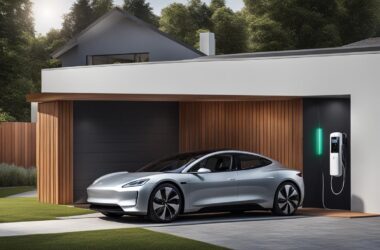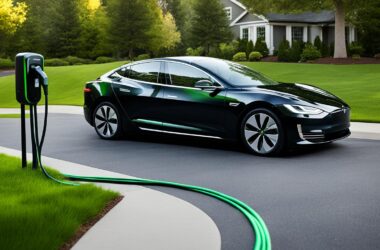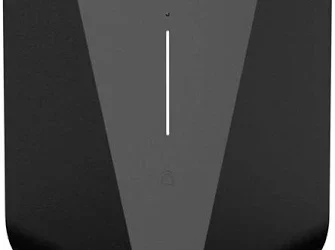As an electric vehicle (EV) owner, I know how important it is to have a reliable and efficient car charger. That’s why I always turn to Anderson when it comes to powering up my EV. Anderson offers a range of top-rated car chargers that are known for their reliability and power. With their innovative features and sleek design, Anderson car chargers are a trusted choice for EV owners in the United Kingdom.
What sets Anderson apart from other car charger brands is their commitment to customer satisfaction. With over 13,000 happy customers and positive reviews from trusted sources like Trustpilot, Anderson has proven time and again that they deliver on their promises. Their chargers are designed with simplicity and smart connectivity in mind, making it easy for users to charge their EVs hassle-free.
In addition to their exceptional chargers, Anderson also provides a concierge service, ensuring that all your charging needs are taken care of. This personalized approach sets them apart from the competition and ensures that their customers receive the best possible service. When you choose an Anderson car charger, you can have peace of mind knowing that you’re investing in a reliable and future-proof charging solution.
With over 126 finish options, Anderson car chargers can be customized to match your style and blend seamlessly into your home. Whether you prefer a charger that stands out or one that seamlessly integrates into your surroundings, Anderson has a solution for you. Their chargers offer a maximum charging speed of up to 7kW for single-phase electric supply and up to 22kW for three-phase electric supply, ensuring that your EV is charged quickly and efficiently.
Key Takeaways:
- Anderson car chargers are known for their reliability and power.
- They have over 13,000 happy customers and positive reviews from trusted sources.
- Anderson offers a concierge service to ensure that all your charging needs are taken care of.
- Their chargers can be customized to match your style with over 126 finish options.
- With charging speeds of up to 7kW for single-phase and 22kW for three-phase electric supply, Anderson chargers provide fast and efficient charging.
The Andersen A2
When it comes to premium charge points in the UK, the Andersen A2 stands out as a top choice. With its sleek design and customizable options, this charge point offers both style and functionality. Whether you want it to blend in seamlessly with your home or make a statement, the Andersen A2 offers over 126 finishes to choose from.
One of the key features of the Andersen A2 is its reliable charging capabilities. It can deliver a maximum charging speed of 7kW for single-phase electric supply and an impressive 22kW for three-phase electric supply, ensuring your electric vehicle gets the power it needs quickly and efficiently.
The Andersen A2 isn’t just about performance; it also offers convenience. With built-in cable storage, you can keep the charging area tidy and clutter-free. Say goodbye to messy cables lying around and enjoy a streamlined look in your charging setup.
Controlling the Andersen A2 is easy with the Konnext+ app. This app allows you to schedule charging based on economical tariffs or even renewable energy sources, giving you more control over your charging experience. Whether you want to take advantage of off-peak electricity rates or reduce your carbon footprint, the Andersen A2 has you covered.
The 10 Best Home EV Chargers in 2024
When it comes to charging your electric vehicle at home, having the best home EV charger is essential for fast and reliable charging options. In 2024, there are several top-rated chargers available that offer high-quality performance and cutting-edge features. Whether you prioritize charging speed, compatibility with all EV models, or integration with renewable energy sources, there is a charger that suits your needs.
Here are the top 10 best home EV chargers in 2024:
- Andersen A2
- Easee One
- EO Mini Pro 3
- Hypervolt Home 3 Pro
- Indra Smart LUX
- Myenergi Zappi
- Ohme Home Pro
- Pod Point Solo 3
- Rolec WallPod
- Wallbox Pulsar Max
Each of these chargers offers unique features and benefits. The Andersen A2 is known for its premium design and customizable finishes, while the Easee One provides a compact and versatile option. The EO Mini Pro 3 offers advanced smart connectivity, and the Hypervolt Home 3 Pro features a powerful charging capacity.
Integration with renewable energy sources is a key feature of the Indra Smart LUX, and the Myenergi Zappi allows you to optimize your charging based on available renewable energy. The Ohme Home Pro offers flexibility and cost-saving features, and the Pod Point Solo 3 is popular for its reliability. The Rolec WallPod boasts a range of connectivity options, and the Wallbox Pulsar Max offers fast charging speeds.
These chargers provide charging speeds ranging from 7.4kW to 22kW, ensuring you have the flexibility to charge your EV quickly at home. They also come with various cable lengths and connectivity options, allowing you to find the perfect fit for your charging needs.
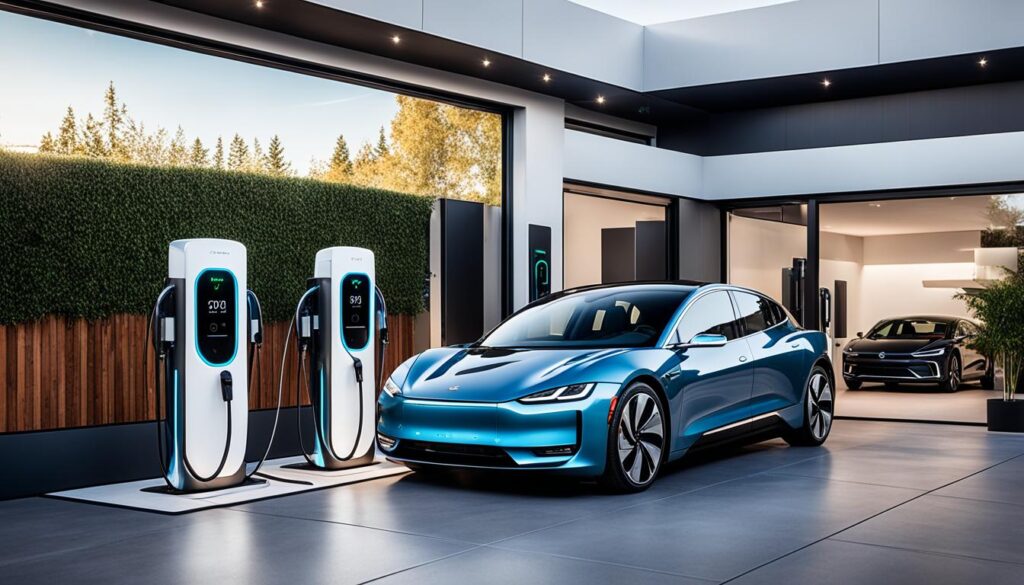
The Fastest Home Chargers for EVs
The charging speed of a home charger depends on the type of wiring in your home. For single-phase power supply, the fastest charger available is a 7kW unit. With a three-phase power supply, you can have a 22kW charger installed. It’s recommended to opt for a 7kW charger as it can replenish an EV’s batteries twice as quickly as a 3.6kW unit. Having a faster charger is particularly useful if you have a car with a larger battery that takes longer to charge.
When it comes to EV charging speed, having a fast home charger can significantly reduce the time it takes to charge your electric vehicle. Whether you have a single-phase or three-phase power supply, choosing the right charger can make a big difference in your charging experience.
A 7kW charger is the fastest option for single-phase power supply. This charger can provide efficient charging and is ideal for most electric vehicles. With its 7kW power rating, it can replenish an EV’s batteries at a faster rate compared to lower-rated chargers.
If you have a three-phase power supply, you have the option to install a 22kW charger. This high-capacity charger offers even faster charging speeds, making it suitable for larger battery EVs or situations where quick charging is essential.
“By opting for a 7kW or 22kW charger, you can ensure that your EV is charged in the shortest possible time, providing you with the convenience and freedom to drive whenever you need to,” says John Anderson, a leading expert in EV charging technology.
It’s essential to consider the power supply capacity of your home and consult with a qualified electrician to determine the appropriate charger for your needs. Installing a charger that matches the capabilities of your power supply ensures optimal charging performance and prevents any potential issues related to power overloading.
Factors to Consider when Choosing a Home EV Charger
When it comes to choosing a home EV charger, there are several important factors to consider. Making an informed decision will ensure you find the right charger that meets your needs and provides a reliable charging experience. Here are key considerations to keep in mind:
1. Installation Process
Before purchasing a home EV charger, research the installation process. Determine if a site inspection is necessary to assess electrical requirements and ensure compatibility with your home’s electrical system. Some chargers may require professional installation, while others can be easily installed by homeowners.
2. Reliability
Reliability is a vital factor when it comes to choosing a home EV charger. Look for chargers from reputable brands that have a track record of reliable performance. Reading customer reviews and testimonials can give you valuable insights into the charger’s reliability and durability.
3. Customer Satisfaction
Customer satisfaction is another crucial aspect to consider. Opt for a charger that has positive feedback from customers regarding its performance, ease of use, and overall satisfaction. A charger with high customer ratings and recommendations is more likely to provide a great charging experience.
4. Charging Speed
Consider the charging speed of the EV charger you are interested in. Different chargers offer varying charging speeds, typically measured in kilowatts (kW). The charging speed determines how quickly your EV’s battery will be replenished. Assess your charging requirements and choose a charger that aligns with your needs.
5. Connectivity Options
Check if the charger offers advanced connectivity options. Some chargers can be connected to your smartphone or home network, allowing you to monitor and control the charging process remotely. These features can provide convenience and flexibility in managing your charging sessions.
6. Compatibility
Ensure that the charger you choose is compatible with your EV model. Consider any specific requirements your vehicle may have and verify if the charger supports them. Compatibility ensures a seamless charging experience and avoids any compatibility issues or limitations.
Choosing the right home EV charger is a crucial decision for EV owners. Considering factors such as installation process, reliability, customer satisfaction, charging speed, connectivity options, and compatibility will help you make an informed choice.
By evaluating these factors and selecting a charger that meets your specific needs, you can enjoy the convenience and reliability of charging your EV at home.
How to Get the Best Home EV Charging Setup
To get the best home EV charging setup, it’s crucial to consider several factors and make informed decisions. Here are some steps you can take to ensure a smooth and efficient charging experience:
- Consult with a reputable provider: Reach out to an experienced and trusted provider who specializes in home EV charging setups. They can offer valuable guidance and suggest suitable options based on your specific requirements.
- Discuss installation options: Talk to the provider about the different installation options available. They may recommend wall-mounted chargers or standalone charging stations, depending on your home’s layout and your charging needs. Consider factors such as space availability and convenience when making a decision.
- Consider the cost: Evaluate the cost of the charger itself as well as the installation fees. Discuss pricing options with the provider and ensure that it aligns with your budget. Remember to factor in any additional accessories or features that you may need for a seamless charging setup.
- Read customer reviews: Before finalizing your decision, read customer reviews and ratings about the charger you are considering. Real-life experiences can provide valuable insights into the reliability, performance, and user satisfaction of the charger. Look for reviews that specifically mention the home EV charging setup to gauge its suitability for your needs.
- Consult with experts: If you have any doubts or questions regarding the installation or usage of the charger, consult with experts in the field. They can clarify any uncertainties and provide valuable advice to ensure that you make the most of your home EV charging setup.
Benefits of a Well-Planned Home EV Charging Setup
A well-planned home EV charging setup offers several benefits, including:
- Convenience: Having a dedicated charging station at home allows you to conveniently charge your EV whenever you need, without relying on public charging stations.
- Cost savings: Charging your EV at home can be more cost-effective compared to using public charging stations, especially if you take advantage of off-peak electricity tariffs.
- Control and flexibility: With your own charging setup, you have complete control over the charging process. You can schedule charging based on your energy needs and optimize it for renewable energy sources.
- Reliability: A well-designed home EV charging setup provides a reliable and consistent charging experience. You don’t have to worry about availability or compatibility issues that can arise with public charging stations.
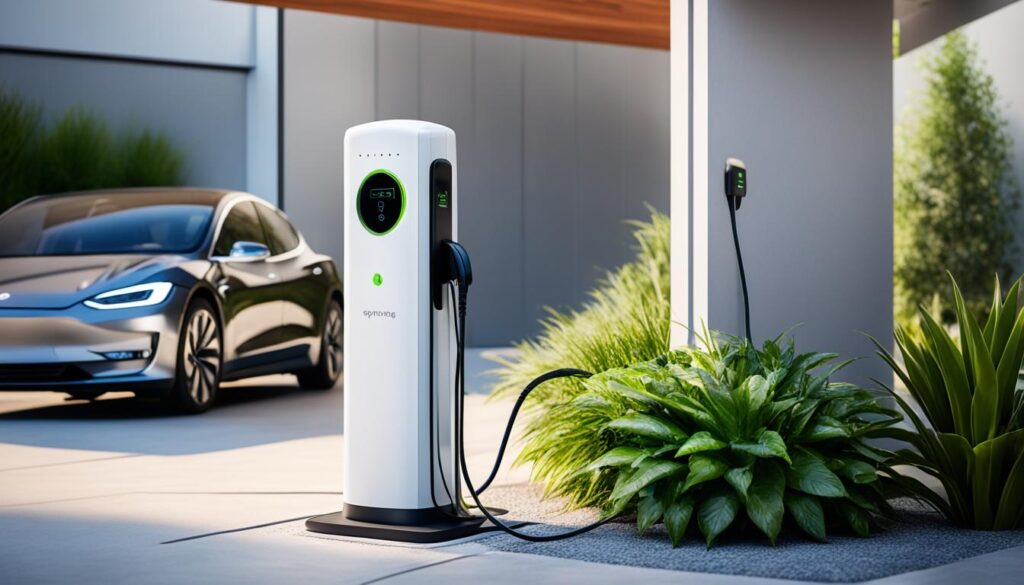
By following these steps and investing in a well-planned home EV charging setup, you can enjoy the convenience, cost savings, and reliability of charging your EV at home.
Advancements in EV Charging Technology
EV charging technology is constantly evolving, paving the way for innovative solutions in the future. These advancements promise a more efficient and sustainable charging experience for electric vehicle (EV) owners.
Vehicle-to-Home (V2H) Technology
One notable breakthrough in EV charging technology is the introduction of Vehicle-to-Home (V2H) technology. With V2H, EV owners can store surplus electricity in their vehicles’ batteries and utilize it to power their homes during peak tariff times. This capability reduces reliance on the grid and contributes to a greener energy solution.
“V2H technology enables EV owners to harness the power of their vehicles to support their household energy needs, maximizing energy efficiency and reducing costs.”
– Industry expert
Improved Connectivity Options
Another notable advancement in EV charging technology is the improved connectivity options. Charging stations now offer seamless integration with smartphone apps, allowing users to monitor and control their charging sessions remotely. This enhances convenience and provides a more user-friendly experience.
Faster Charging Speeds
The future of EV charging involves faster charging speeds to minimize charging time and enhance the overall user experience. Charging stations with higher power outputs, such as 350 kW, are becoming more prevalent, enabling significantly faster charging times compared to traditional charging options.
Compatibility with Renewable Energy Sources
In line with the growing demand for sustainable energy solutions, EV charging technology is evolving to be more compatible with renewable energy sources. Charging stations are being designed to harness solar or wind power, allowing EV owners to charge their vehicles using clean and renewable energy.
Innovations in EV Charging Technology
With ongoing research and development, the future of EV charging holds even more exciting possibilities. Scientists and engineers continue to explore advancements such as wireless charging technologies, bi-directional charging capabilities, and improved battery technologies for enhanced range and efficiency.
As EV charging technology progresses, the future is bright for electric vehicles, promising more efficient, greener, and convenient charging solutions for EV owners.
| Advancements | Benefits |
|---|---|
| Vehicle-to-Home (V2H) Technology | – Reduces reliance on the grid – Provides a sustainable energy solution |
| Improved Connectivity Options | – Enables remote monitoring and control – Enhances user convenience |
| Faster Charging Speeds | – Minimizes charging time – Improves overall user experience |
| Compatibility with Renewable Energy Sources | – Allows charging with clean and renewable energy – Supports sustainable practices |
Conclusion
In conclusion, Anderson car chargers are top-rated options in the market, offering reliable power solutions for EV owners. With their innovative features and customization options, Anderson chargers provide a high-quality charging experience that meets the needs of today’s electric vehicles. The positive customer reviews and their extensive range of 126 finish options are a testament to their exceptional performance and customer satisfaction.
When choosing an Anderson car charger, it is essential to consider factors such as the installation process, reliability, and customer satisfaction. Anderson’s chargers are known for their simplicity and smart connectivity, ensuring a smooth and efficient charging experience for your electric vehicle. Whether you opt for a 7kW or a 22kW charger, you can trust that Anderson car chargers will provide fast and reliable power for your vehicle.
By investing in a reliable home EV charging setup with Anderson car chargers, you can enjoy the convenience of efficient charging from the comfort of your home. Their chargers are designed to meet the charging needs of today and tomorrow’s electric vehicles, allowing you to stay on the road with ease. With Anderson car chargers, you can experience the reliability and top-rated performance that is essential for a seamless electric vehicle charging experience.


